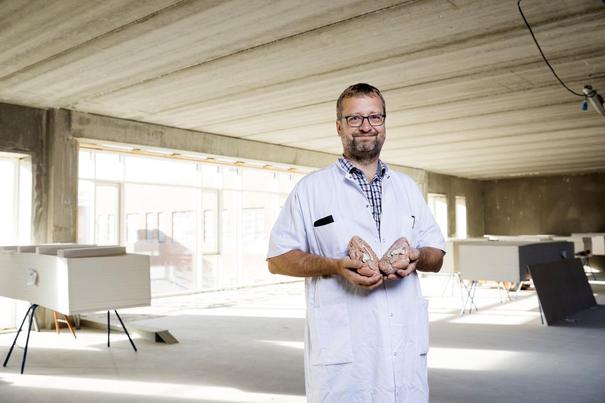Work-life Brilliance
Brain researcher: Learning from mistakes fights zero defects culture

Troels W. Kjær is a brain researcher and Chief Physician at the Neurophysiological Department of Zealand University Hospital
We need to stop rewarding only success if we are to do away with a zero defects culture. By accepting and rewarding the process of learning from mistakes, we do away with the idea that making a mistake is dangerous. It is exactly by making mistakes that we as human beings learn and develop.
It is actually not your brain, but your place in society, within your family and at work that makes you afraid of blundering.
“The brain likes to make mistakes because this enables it to learn. If, for instance, I play darts and aim too far to the right, then my brain learns and adjust so that on my next throw, I aim a bit further to the left,” explains Troels W. Kjær, brain researcher and Chief Physician at the Neurophysiological Department of Zealand University Hospital and a professor at Copenhagen University.
Learning through mistakes
It is by making mistakes that we humans learn and develop. If you never make mistakes, your chances of learning new things and develop new skills are very limited.
Naturally, there are different kinds of mistakes. Sometimes you are able to say “I learned my lesson” and that’s that – and sometimes you realise your mistake when you are already in deep water and the stakes are high. Some mistakes have more serious consequences than others, but both kinds can be turned into something positive if we insist on learning from them.
“Our reptile brains punish us for making mistakes. When we or others discover that we did something wrong – such as using the incorrent translation of a word and a colleague points it out – you both learn from the mistake and get punished by your unconsciousness, at the same time,” Troels W. Kjær explains.
The punishment from our unconscious brain may be very unpleasant if we fail to connect it to our mental experience of the moment when we made the mistake. For some, the punishment carried out by their brain becomes attached to the idea of their own self-worth. Maybe you have experienced making a mistake that seemed to confirm your suspicion that you are good for nothing, or that you are always doing something wrong.
“This tendency is amplified if we only celebrate successes and fail to acknowledge the value of learning from mistakes,” Troels W. Kjær explains.
Reward both mistakes and successes
We need to pay attention to not only successes, but failures as well if we want to combat a zero defects culture. We should not stop caring about making mistakes, but we should accept and reward the process of learning in which making mistakes is an essential part. That way, we become less afraid to fail.
“The lessons learned through mistakes are pivotal for professional growth, but also for whether you, as a person, are able to throw yourself into things knowing that they might some day lead to failure,” Troels W. Kjær says.